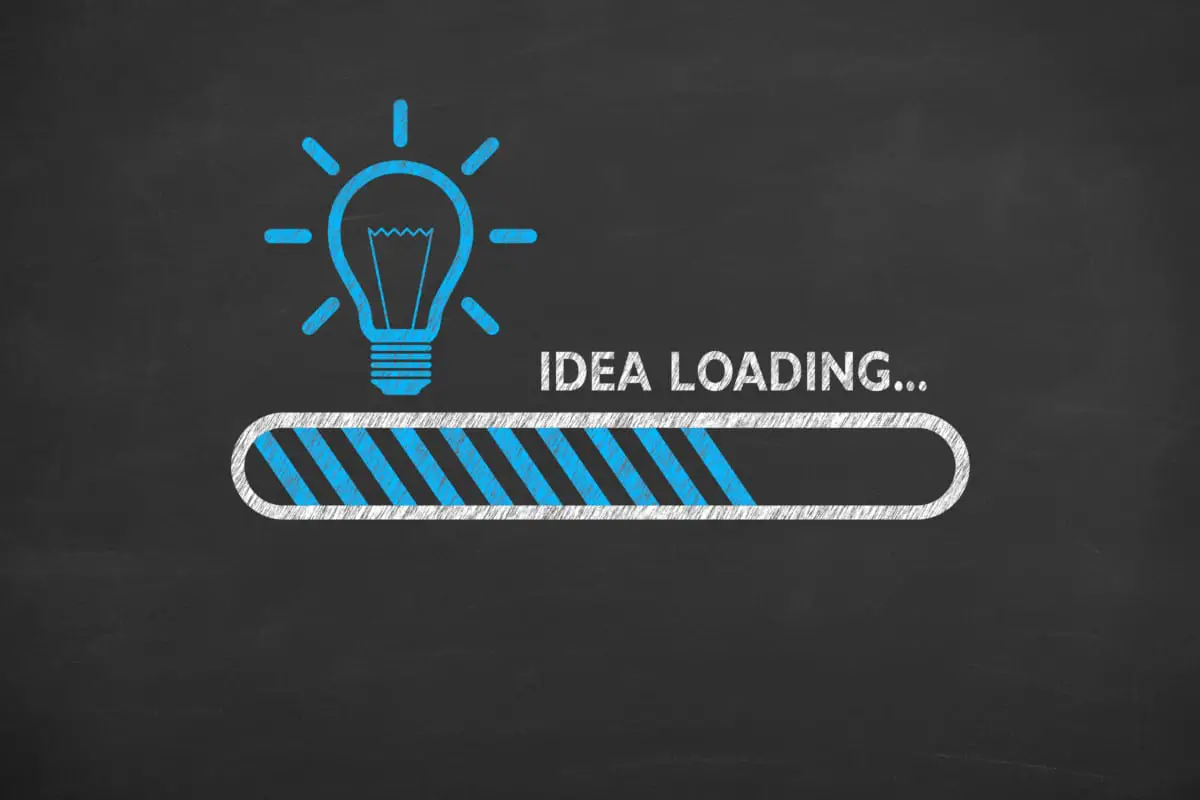Comedy is all about being quick witted. Usually the person with the sharpest wit among friends is the one that gets all the laughs. The same is true with professional comedians when generating comedy ideas. Ideas come from everyday things but you have to mine them. So what is the best way to generate comedy topics fast?
The best way to generate comedy ideas are:
- Think about things you love, hate, scary you, annoy you, confuse you, and are common to you.
- Write out things you think of related to those topics.
- Record yourself talking about those things.
- Transcribe those recordings and create setups, punchlines, and tags.
When you look at those things you can generate material quickly and make it fit your voice. Ideas lead to Premises, Premises lead to Punchlines, Punchlines lead to Tags, and together they make Jokes.
Why Generating Material Fast Is Important
You are probably wondering why generating so many jokes so fast is important. Well is it important for two reasons.
- If you have a lot of material you build the joke writing “muscle”. This means you can write more jokes faster.
- It means you will be able to build multiple and longer sets faster.
If you build the joke writing “muscle” early you will be able to generate so much material you will get rid of and learn how to spot bad jokes as well as find jokes that don’t fit your voice but you can sell to other comedians.
With all that material you will have more things to practice and refine sooner. Yes you should start by building a “tight five” or a strong five minute set. But too often comedians do that “tight five” or “tight ten” for years and never write new material. By starting early you make sure you don’t get stuck and by generating material early you can sell the stuff you know you will never use thereby working out stuff and making some money while you do.
Defining a Premise and a Setup
There is always some debate about what a premise is in comedy. Some people say it it the opinion (usually negative) some say it is observations, and others say a statement. No matter what you think a premise is the overarching idea of the joke.
Premises are the backbone of all jokes. That idea that the entire joke is built upon is the premise. If you have ever though I would “what X would be like with Y?” you have thought up a premise. Sure some premises are silly or weird but sometimes that is the best starting point. This is because the question is an observations.
For example: Why are people such jerks? This is your theme of your entire joke. Then you take your question and turn it into a statement to create your premise. For example: People Are Jerks. Once you know your premise you can build punchlines and tags around that idea.
Now you have to develop the idea by refining your feelings about it. Premises are statements that are true. Your entire joke is about why people are jerks, how people are jerks, and your feelings about how to deal jerks, etc. These are your setups. Setups need punchlines to complete the joke.
Defining Punchlines and Tags
Punchlines are the MOST important part of a joke. Why? Because that’s what makes people laugh. A punchline is what concludes a joke and is the part that is intended to make people laugh. In addition to a punchline any additional lines that increase laughter without a new setup is called a tag.
Punchlines and tags are like jabs and crosses in boxing. The jab is the setup and the cross is the punchline that catches you off guard. A flurry after that cross/punchline is the tags. These are just punchlines that you added on and did not use a setup to get to.
How To Generate Premises
Jokes are only as funny as the premise. Without a good premise (notice I said good and not funny), you will not be able to grab the audience and make them laugh. A good joke does not rely on the premise to start the laughter. Comedy is based on surprise. Yes you can talk about something ridiculous but you have to sell it as a setup.
Premises can be as simple as something mundane and normal or something you wonder about. In order to generate premises start writing out things that pop in your mind. Don’t edit, don’t think, just write.
Brainstorming and getting ideas out quickly is the first step in generating a lot of comedy material. Comedy is all about words. The more ideas you can generate the faster you can generate large amounts of material to test and try onstage.
How To Generate Punchlines
Once you have written out your premises, you should list them out on another sheet of paper or in a word document. (I also like Google Drive as I can put everything there for FREE.)
Next to each premise write the first things you think of and go until you run out of ideas then move to the next premise. So if the premise is bears, I might write grizzly, camping, fish, Yogi, hiking, pond, Yellowstone, honey, pooh, etc. While not everyone of those may be used as a punchline you may find a way to tag an already humorous joke.
These ideas can become punch lines. You put the premise and punchline together like this: Bears>Yogi. Then you audio record as you rant about Yogi Bear or Yogi and bears or whatever you talk about.. This will be the best way to get out a ton of new ideas.
This is the best way to generate materiel. You are talking out your idea. This is similar to how to speak on stage. The information, and ideas will be more natural and it will help you form the jokes faster since this is how you talk.
NOTE: If you are a character comedian do this as your character.
How To Create Jokes Fast
So you came up with a premise and then talked out your idea. Congrats you just “wrote” a lot of material in a short amount of time. Sure you have to type it out but you generated a ton of material without having to write.
This is the easiest way to “write” jokes. You already said them in your own voice and cadence so it will be simple to transcribe the ones you find funny or the gems you think you can polish on stage.
Once you transcribe them you take time to remove any words that are unnecessary so that you have short and tight jokes that can get 4 to 6 laughs every minute which is the goal as a headliner. If you can average 18 seconds of laughter per minute then you can build sets faster and have more material to use on stage.
A good comedian knows how to craft a joke. A great comedian know how to generate joke ideas they can then craft into great jokes. If you learn to write more jokes it gives you more opportunity to craft great jokes that make crowds roar with laughter and get you on stage more often.

